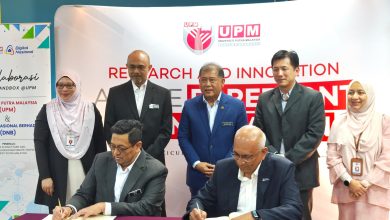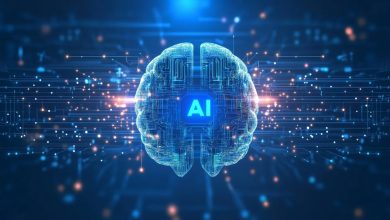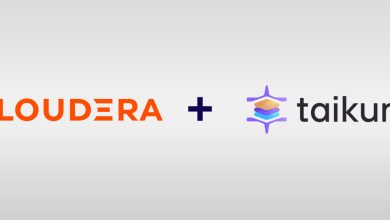Integration Key as 97% of APAC IT Leaders Turn to AI Agents Amid Soaring Resource Demands – New Research
Integration is crucial for creating a limitless digital workforce of interoperable agents, as 81% of APAC businesses cite data integration as a major challenge for AI adoption

As IT resource demands spike, new research finds that 97% of APAC enterprise IT leaders have implemented or plan to implement AI agents in the next two years. However, integration challenges hinder companies from fully realising the technology’s potential to create a limitless digital workforce, which can significantly alleviate IT workloads. The findings reveal that 95% of APAC respondents struggle to integrate data across systems. Moreover, only 27% of applications are typically connected within organisations, on average, impacting the accuracy and usefulness of AI agents.
Why it matters: AI agent outputs depend on connected data that enables a comprehensive understanding of the context and nuances within user queries. These agents gather structured and unstructured data from diverse sources, including CRM, ERP, and HCM, as well as email, PDFs, Slack, and more, and use it to make decisions and take action for any business process. By integrating their data, systems, and applications, organisations can tap into a limitless, AI-powered digital labour force that can act autonomously across their business to successfully carry out both simple and complex tasks.
One such example is Adecco: Adecco Group is a leading talent company that’s reimagining recruiting and support for job applicants with Salesforce’s Agentforce. The organisation is harnessing MuleSoft and Data Cloud to centralise data across over 40 systems, enabling recruiters to use Agentforce to drive faster job placements and personalise service at scale while boosting efficiency and accelerating decision-making.
Key findings from MuleSoft’s 10th annual Connectivity Benchmark Report:
Increased IT demand opens the door for AI agents to improve efficiency, lower cost
IT teams already responsible for maintaining current systems are struggling to meet new demand for AI solutions.
- The percentage of projects not delivered on time has risen to 27% in 2024 – up from 25% in 2023.
- What’s more, 85% of APAC IT leaders expect workloads to rise in the future. On average, surveyed leaders expect a 16% increase in projects from 2024 to 2025.
- To meet increased demand, APAC enterprise IT leaders spent an estimated average of $11.2 million on IT staff in 2024, an increase from 2023 (estimated at $10.2 million).
AI agents and integration solutions present an opportunity to improve productivity, increase efficiency, and lower costs by taking action on behalf of overwhelmed IT teams.
- Most APAC IT leaders (93%) say that AI will increase the productivity of their developers in the next three years. And those using AI agents are even more confident, with 98% agreeing.
- Around two-fifths (39%) of IT’s team time, on average, is spent designing, building, and testing new custom integrations between systems and data to enable digital capabilities and solutions for the business — something that can be automated with the right integration solution.
Increasingly complex infrastructures hinder AI agent efficacy
The growing number of applications and AI models used by enterprises creates data silos that can limit agents’ ability to operate effectively.
- On average, 93% of APAC IT leaders say data silos are creating business challenges in their organisation. The challenge is greater at organisations using agents (98%), compared to those not using agents (89%).
- APAC organisations today are using 912 applications, on average.
- Organisations with AI agents use even more applications (1,130 on average) – 47% more than those that don’t use agents (771).
- The estimated number of AI models used by APAC organisations has more than doubled (from an average of eight in 2024 to 19 in 2025).
- Organisations using agents are leveraging an average of 24 AI models, while those not using agents are leveraging 15 AI models.
APIs, connectivity can enhance IT and AI agent performance
By aligning integration and AI strategies, organisations can simplify and unify their data infrastructure, unlocking the full potential of their data to efficiently power AI agents. Using these tools, agents can access critical, business-specific data to function at their best and extend across the enterprise to interact directly with existing systems and automation.
- Among APAC organisations with agents, those using APIs are taking advantage of their capabilities to:
- Improve IT infrastructure (50%)
- Enable data sharing across teams (48%)
- Automate workflows (46%)
- On average, 48% of an APAC organisation’s internal software assets and components are available for internal reuse. This is an opportunity for companies to leverage their reliable data and existing investments with APIs, instead of building from scratch, to create trusted AI agents.
APIs drive broader business value
In addition to enabling AI agents to access services, databases, and functionalities provided by applications, IT leaders also highlight the significant business value of APIs – from increasing efficiencies to impacting revenue.
- APAC organisations using APIs report these top benefits:
- Increased productivity (52%)
- Increased speed in meeting business demands (49%)
- Teams can manage their own IT needs (46%)
- More than a third (37%) of IT teams are leveraging APIs to increase the efficiency of their application development process.
- APAC IT leaders estimate an average of 38% of their company’s revenue is generated from APIs and API-related implementations. The number is even higher (45%) at organisations using agents.
Perspectives:
- “AI agents are set to transform enterprises with limitless digital labour. We see forecasts of new levels of efficiency and productivity with the unified human and agent workforce. However, to unlock this new capacity, integration and APIs are critical to building an agent-ready foundation. Agents depend on unified data and enterprise actions, powered by integration and automation, to provide accurate, trusted responses and perform complex, multi-step tasks.” – Andrew Comstock, SVP and GM, MuleSoft
- “In the agentic era, IT leaders are seeking ways to meet the increased demand for efficiency and productivity. This strain on their teams is growing as they navigate balancing current capabilities with business aspirations: steadily incorporating AI and autonomous agents across an ecosystem of hundreds of distinct applications while also maintaining those same systems. Leading organisations must establish a proactive integration strategy for unifying the entire IT estate, encompassing apps and systems, automation, and APIs, all of which are vital for driving revenue growth and reducing operational costs.” – Beena Ammanath, Global Deloitte AI Institute Leader, Deloitte*
- “This report provides invaluable guidance for businesses navigating the complexities of digital transformation and the underlying need for effective data integration. By leveraging these insights and unlocking the power of cutting-edge technology, we empower organisations to unlock the full potential of integration—connecting systems, data, and processes to drive innovation, enhance customer experiences, and achieve sustainable growth.” – Maximilian Schroeck, Global Chief Commercial Officer for Salesforce, Deloitte Global
More information:
- Download the Connectivity Benchmark Report
- Get more insights on the report from the MuleSoft Blog
- Apply the insights and learn how to create your agentic enterprise




